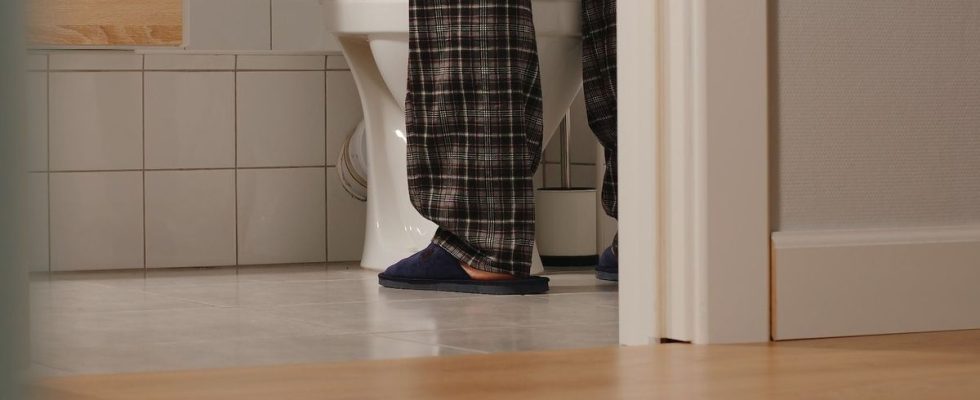Published on
Updated
Reading 1 min.
Experts warn: watching television more than 5 hours a day could make you want to urinate at night. And therefore, disrupt your sleep rhythm.
Researchers found that watching TV or videos for five hours or more per day had a 48% higher risk of experiencing nocturia (going to the bathroom several times per night) compared to those who limited this type of activity. less than an hour a day.
The impact of time spent on screens
Researchers from Wenzhou Medical University in China analyzed data from more than 13,000 people aged 20 and over. Nearly a third of participants reported suffering from nocturia, which is the habit of waking up more than twice a night to go to the bathroom.
In this study published in the journal Neurology, experts establish a link between screen time and nocturia. “As individuals increasingly engage in screen-based activities, a comprehensive understanding of the impact of prolonged television and/or video viewing time on nocturia patterns is crucial for healthcare professionals and practitioners. of public health”, say the specialists. “Our research showed that people who spent five or more hours a day watching TV and/or videos were significantly more likely to develop nocturia.”they emphasize.
Consult a doctor online for your sleep problems
Behavior to change
The data from this study raises awareness about the time spent in front of screens and the negative impact it can have on our health. This is why researchers encourage health professionals to offer behavioral intervention recommendations that aim to manage screen time more appropriately.
While it is normal to get up once a night to go to the bathroom, getting up several times can, on the other hand, impact your sleep rhythm and have negative consequences.
However, other underlying medical causes should also be taken into account, such as an overactive bladder, kidney stones or even problems affecting the urinary tract. If in doubt, ask your doctor for advice.
